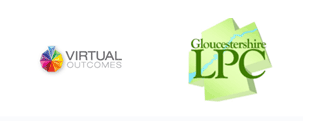Safeguarding
Contractors have been reminded by NHSG that Safeguarding is ‘everybody’s business’ and that within the clinical governance of the pharmacy contract it is necessary to ensure that all staff are aware and suitably trained.
The LPC together with NHSE have agreed that to conform with national and local standards,
- All non-clinical staff should be trained to Safeguarding Level 1 (formerly Child Protection).
- All Pharmacists and Clinical Staff (technicians) or staff carrying out one2one consultations with patients (e.g. stop smoking adviser service) should train to Safeguarding Level 2.
Safeguarding update April 2018
Training
To satisfy level 1, staff should complete the Kwango Safeguarding Children module.
Staff who require training to level 2 should complete the Kwango Safeguarding Children module and also complete Kwango Safeguarding Adults at Risk.
NHSE recommends that the pharmacy Safeguarding Lead completes the Kwango Safeguarding Leadership. All training is free from charge.
Log in on the right hand of the home page using this information:
Username: GCCOther
Password: GlosKWA25
Then you can pick the course you’d like to do. Please remember to print off your certificates.
Pharmacists and Technicians may wish to access the CPPE online module as an alternative training module. http://www.cppe.ac.uk/learning/Details.asp?TemplateID=SAFEGRDING-E-01&Format=E&ID=115&EventID=41964
Group Learning for Level 1:
If neither of these online courses are possible, this is the safeguarding presentation (PDF format) and accompanying notes which can be used for in house safeguarding training, together with the quiz sheet below. This presentation could be done over a lunch hour. The Safeguarding Lead should lead the session – this person should have completed Level 2 safeguarding (eg. CPPE equivalent), and have full understanding of the presentation. As this does not include vulnerable adults, please ensure you make reference to those adults that you see who might be at risk.
A QUIZ (kindly provided by Kim Barfoot, Lloyds Pharmacy) is available to test knowledge and understanding. Staff should sign to confirm completion of the training – you may want to provide a certificate or training acknowledgement.
Level 2:
GSGCB and other pharmacy training organisations provide level 2 accreditation if preferred.
Gloucestershire Anti-Slavery Partnership
These documents may be of use during staff awareness or training:
Modern Slavery Awareness Campaign
We’re currently supporting a Modern Slavery Awareness campaign in Gloucestershire with activity planned until 5th June 2017.
The campaign aims to build awareness of slavery in Gloucestershire, educate people about the signs of Modern Slavery and encourage people to report individuals who may be victims of slavery or human trafficking.
If you use social media we encourage you to follow and share the information posted by Gloucestershire Constabulary and the county council.
More on the campaign can be found here.
Safeguarding contact numbers
| Children’s Family Helpdesk | Gloucestershire Safeguarding Children phone numbers April 2018 |
| Adult Helpdesk | 01452 426868 |
| NHS Gloucestershire LEAD | |
| Annette Blackstock | 0300 4211561 |
NHS Gloucestershire
Safeguarding Lead Roles (2017):
| Dr Imelda Bennett | Designated Doctor | 0300 4225702 |
| Annette Blackstock | Named Nurse | 0300 4211561 |
| Dr Katy McIntosh | Named GP | 07825 078998 |
| Dawn Chapple | Named Nurse | 0300 421 6769 |
Specialist Nurses for Safeguarding Children:
Contact Sylvia King on 0300 4218527 for the contact in each locality
Safeguarding Children
Contact Numbers:
| Safeguarding Children Service | 01452 583636 |
| Emergency Duty Team | 01452 614 194 |
| Police Control Room | 08450 901234 |
| Children & Families Helpdesk | 01452 426565 |
- If you have a concern, discuss it with your pharmacy safeguarding lead or line manager
- You have a duty to record full details of your concern (use reporting form – see GSGCB website)
- Concerns should be logged with 24 hours – following the GSGCB pathway
- https://g-care.glos.nhs.uk/pathway/442/resource/3
Safeguarding Adults
Contact Numbers:
Gloucestershire County Council (Adult Help Desk)
01452 426868
socialservicesenq@gloucestershire.gov.uk
Safeguarding Adults Team 01452 425879
Safeadults@gloucestershire.gov.uk
Gloucestershire Fire and Rescue Service Community Safety Team
01452 753333
fire@glosfire.gov.uk
Gloucestershire Police
101
www.gloucestershire.police.uk
Victim Support
01452 317444
www.victimsupport.org.uk
Emails – safeguarding
An email is secure if sent from one of the domains in the list to another domain in the list. Therefore NHSmail (nhs.net) to and from any of the following domains is secure:
- .gcsx.gov.uk (Local Government/Social Services)
- .cjsm.net (Criminal and Justice)
- .gse.gov.uk (Central Government)
- .gsi.gov.uk (Central Government including Dept. of Health)
- .gsx.gov.uk (Central Government)
- .hscic.gov.uk (The Health and Social Care Information Centre)
- .mod.uk (Military)
- .nhs.net (NHSmail)
- .pnn.police.uk (Police)
- .scn.gov.uk (Criminal and Justice)
The list can also be found on the HSCIC website:
There is a description further down the web page of how to send an encrypted email to an address not included in the list above, such as @hotmail.com.
Local information
- Adult referral pathway for potential victims of trafficking
- Child referral pathway for potential victims of trafficking
G-Care – a web based database/information service https://g-care.glos.nhs.uk/
Current ‘Pregnancy Advisory Service’ (PAS) and ‘Coercion safeguarding’ onward referral form.
LPC – Safeguarding Good Practice Guide
Pocket principles of protection – a guide for health care professionals (a great resource)
Top Tips
- Nominate a Safe Guarding Lead in the pharmacy.
- Ensure all staff are trained within 3 months of induction, and updated annually.
- Staff should know what to look out for and how to raise & record a concern.
- Pharmacy SG Lead and staff should know who to contact locally when safeguarding issues are raised (these names and contacts change regularly – check for updates).
Fact Sheet and Truth Project poster regarding the Independent Inquiry into Child Sexual Abuse (IICSA). If possible please display in your waiting area.
RPS Protecting Children and Young People guide
Safeguarding Concern Logging reporting form
NHSE Safeguarding Staff Training Compliance Form
GSCB: NHS Contractors – guidelines
More information about local Safeguarding arrangements can be found at http://www.gscb.org.uk/


